5 Reasons To Visit Liwonde
Some of the best river-based elephant, crocodile, hippo and general wildlife viewing in Africa.
Home to the rare and critically endangered black rhino as well as the historic elephant translocation.
Experience the cathedral-like mopane woodlands interspersed with candelabra euphorbia with good populations of buffalo and sable antelope.
The amazing views of Borassus palm-studded floodplains.
Finally, a bird watcher’s delight with easy viewing of Pel’s fishing owl, Boehm’s bee-eaters, Lilian’s lovebirds, and Livingstone’s flycatcher.
Liwonde Travel Information
- When To Visit
The ideal time to visit the park is during the dry season from April to October. During this time, the bush is dry and open, making game easier to spot.
There are three distinct seasons in the area:
November – March
When the rains begin, the conditions are generally hot and wet. Humidity peaks during January and February, and the bush is thick, making it difficult to spot game. However, Liwonde is magically turned from a dust bowl into an emerald paradise during this time, and is particularly beautiful.
April – August
Temperatures are cooler and rainfall drops during this period. It is advisable to take warmer clothing for activities during the early morning and evenings or on the river, particularly in July and August.
September – October
Temperatures are extremely high and it is very hot and dry during these months. The landscape is sparse and dry with limited vegetation cover, but game viewing is amazing.
- Need To Know
Liwonde National Park is open from 06h00 to 18h00.
Park Daily Fees:
- Malawi Citizens
- Adults: US$4
- Children: US$2
- Malawian Residents
- Adults: US$15
- Children: US$7.5
- International Visitors
- Adults: US$30
- Children: US$15
- Fees per vehicle per day: US$4
*Children 6 and under free
- Malawi Citizens
- Healthcare Essentials
Healthcare in Malawi is generally poor with limited supply of medication. It is advisable for any visitor to Malawi to contact their doctor or travel clinic at least eight weeks prior to travel for up-to-date advice on the vaccination requirements and health precautions. It is also recommended that travellers take appropriate medical insurance for their holiday.
Please note that Malawi is a malaria area and therefore is advisable that visitors take recommended prophylaxis medication prescribed by a doctor. While on anti-malarial medication it is still recommended that the necessary precautions be taken to avoid getting bitten (insect repellents, as well as long sleeves and trousers in the evenings and mornings).
Tsetse flies can be a problem in certain parts of the park. Tsetse flies tend to be attracted to dark colours so it is advisable that visitors wear khaki and lighter colours and make use of insect repellents.
We advise against drinking tap water unless it is boiled or filtered. Bottled water is widely available in Malawi.
- Travel Essentials
Chichewa is the predominant local language, particularly in rural areas. English is also widely spoken mainly in the cities and main tourist areas. If you want to travel in areas that are not on the main tourist routes, a simple handbook containing a few Chichewa phrase words or a smartphone app may be useful when trying to communicate with local people.
Visas are not currently required for stays of less than 90 days for holders of SA, US, UK, and most, but not all Commonwealth and EU passport holders. A full list is available at www.foreignaffairs.gov.mw
Passports must have a validity of at least six months from the day of entry into Malawi.
The local currency is the Malawian Kwacha. Check if your accommodation accepts foreign currency and if they have credit card facilities. Major credit cards, Visa or Master card may be accepted in some places. It is sometimes possible to withdraw cash from ATMs in the larger towns, however bear in mind that you may need a small backpack for large sums of cash. Foreign currency can be exchanged in certain banks situated in the major towns. The rates of exchange will depend on the bureau.
- Safety Essentials
Malawi is known as the Warm Heart of Africa and is a relatively safe country for travellers. However, visitors should take the normal safety precautions whilst travelling. Do not carry large amounts of money when walking around, and make sure your valuable items are securely locked away or on you at all times. Road travel can be dangerous at times, so always be on the lookout for other vehicles, bicycles and pedestrians.
